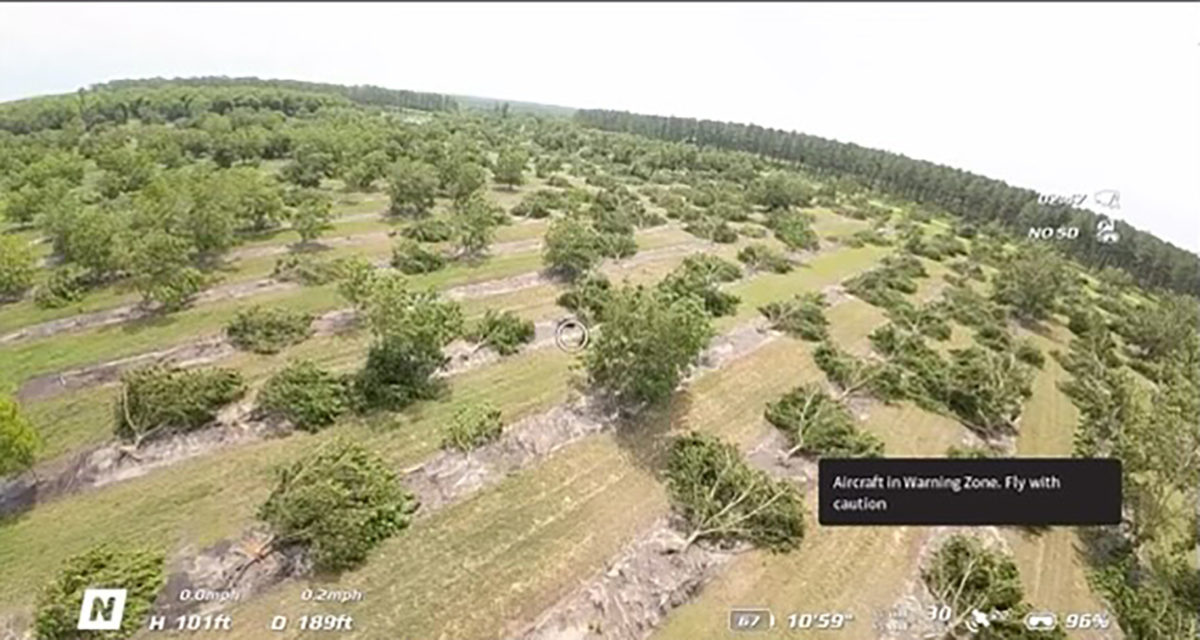By Clint Thompson
A month since Hurricane Idalia ravaged South Georgia and the area’s pecan crop, one producer has a final tally on his devastation. It was way worse than he had imagined.

“I just finished getting a tree loss count. It’s about 15%, farm-wise, of the trees that were lost. Initially, I was hoping it would be about 10,000 (trees), but it just kept adding up, and it’s all ages. It’s everything from like 3 years old and up with the majority of it being stuff under 20 years old. It was about 19,000 trees,” said Buck Paulk, one of the state’s largest pecan producers, located in Ray City, Georgia.

“The worst-case scenario was to lose 85% and have 15% left. I’ve got way more trees up than I do down, but it is 15% of trees over 4,100 acres. The majority of it is under 20 years old. That age category, they topple over easier than older ones do.”
The total number of trees amounts to approximately 615 acres of trees that were lost. The storm caused more trees to tumble over than it did tearing them apart.
Cleanup Work
Paulk and his workers have worked to clear out downed trees over the past month, since Idalia moved through the Southeast on Wednesday, Aug. 30. It wasn’t until early last week that Paulk drug out the last trees. Wood chippers will be operating for the next couple of months. Additional work is needed during the wintertime to fix or remove leaning trees.
Most of Paulk’s trees are hedged, which should mean good news when thinking about next production season.
“I think the structure of hedged orchards, they withstand limb breakage better. There’s limb damage and crop loss, but I’m really hopeful that the trees’ structure is intact well enough that we can come back next year and not suffer a lot of damage. That’s yet to be seen, but that’s what I feel like,” Paulk said.
Paulk said not all trees that were lost will be replaced. Much of the higher density plantings were scheduled to be removed in the next three years anyway. Some spots will not need to be replaced.
Paulk has every reason to be downtrodden, especially with harvest season under way with early varieties across the state. But he is not.
“You just pray, and you just trust God, and you just move forward. That’s all we can do is just clean it up and press on,” Paulk said. “Find things to be thankful for. Honestly, that’s how I just cope with it and deal with it.
“My hope was and the way the market is to break even this year. It’s a dead loss, but in all sincerity, over the course of the next two years, hopefully, you just can tread water and absorb 15%; reset and move on.”










